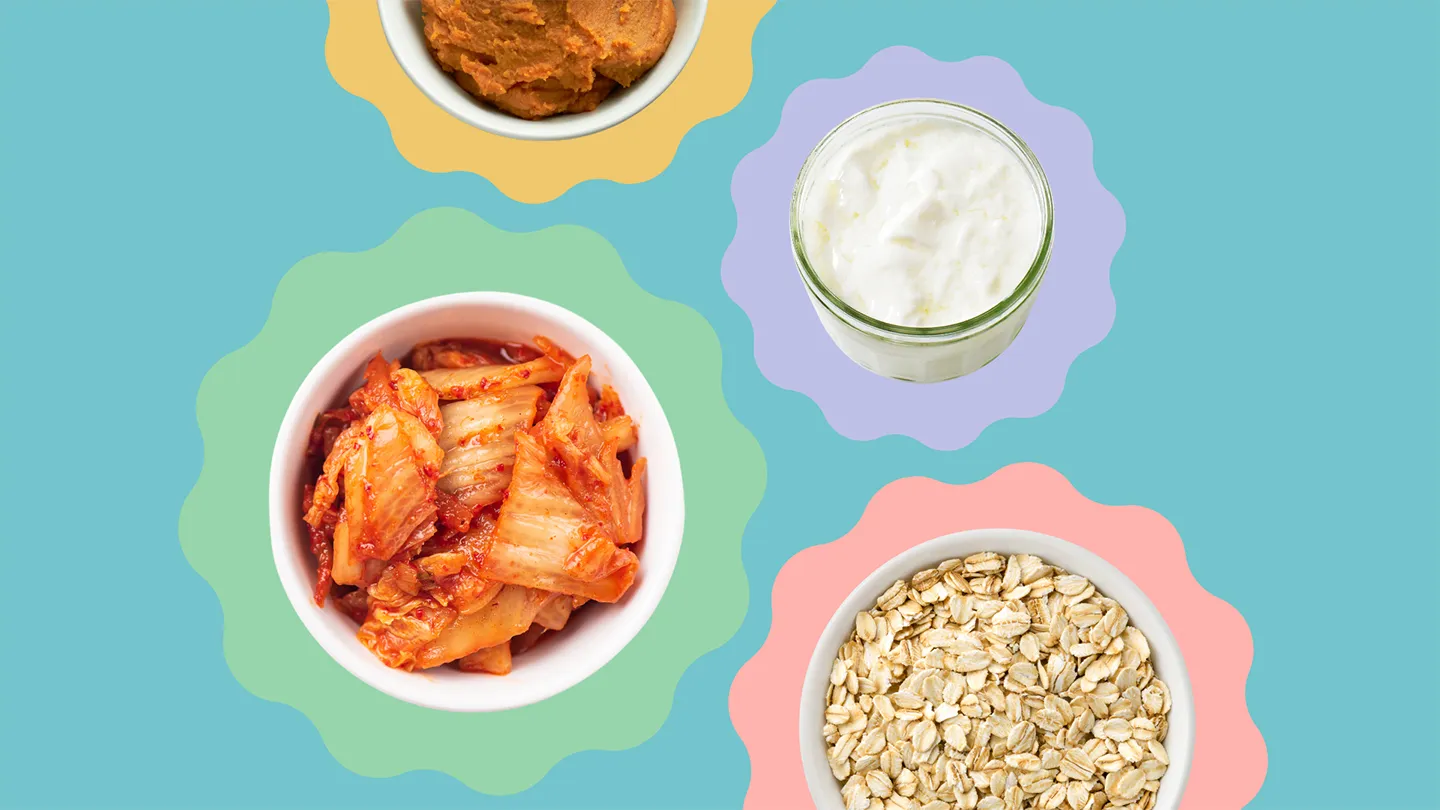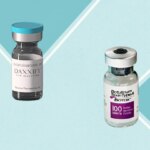When it comes to supporting your body’s functions, the gut is truly a powerhouse. When it’s in optimal shape, your digestive system has been linked to a sunnier mood, deeper sleep, stronger immunity, and, not surprisingly, more on-point bathroom habits.
To get into that optimal zone, you need to support your gut microbiome, which is the ecosystem of microbes living in your intestines. The microbiome includes over a thousand species of bacteria, with both beneficial and harmful types trying to assert dominance. Cheering on the good ones while minimizing the bad kind is an ongoing effort, and for that, some people turn to probiotic supplements, since they promise to boost the numbers of the helpful bacteria — essentially crowding out the harmful ones. But there’s a catch.
“Despite how many probiotic supplement options are currently available, we still don’t know if they’re working to do what they claim,” says Ashkan Farhadi, MD, a gastroenterologist at MemorialCare Orange Coast Medical Center in Fountain Valley, California. “That doesn’t mean you should avoid them completely, particularly if you’re taking these supplements and they seem to be assisting you in some way. But keep in mind that there’s much stronger evidence about how food-based sources of probiotics can support your health, especially because they offer vitamins, minerals, fiber, and other nutrients in addition to probiotics.”
Although Dr. Farhadi doesn’t see probiotic supplements as harmful, he tends to recommend them only in specific circumstances — for example, if you’ve taken antibiotics and need to repopulate your gut quickly — and prefers a food-first approach for most people looking to support their microbiome. Here are seven probiotic-rich food options to consider for your next grocery run.
1. Yogurt With Honey
“Yogurt is rich in Lactobacillus and Bifidobacterium, which are the main beneficial bacteria colonizers of our gut microbiome,” says Adrian Hernandez, RDN, a registered dietitian-nutritionist specializing in gastrointestinal and autoimmune issues at AEH Nutrition in Washington, DC. “It also contains high amounts of calcium, phosphorus, vitamin B12, and B2.”
The probiotic boost comes from the fermentation process, which creates live cultures of these bacteria. Look for unpasteurized products, since heat can kill those good bugs. One way to help the bacteria survive into the gut is to add a little honey, researchers note.
2. Kefir
Although kefir is sometimes called “drinkable yogurt,” this fermented dairy beverage is actually made with a different fermentation approach. Kefir “grains” are colonies of bacteria and yeast that turn lactose (the sugar in milk) into lactic acid, giving the drink a characteristic sour tang and slightly fizzy texture.
That process produces a wide variety of beneficial bacteria, often with dozens of bacterial strains, says Adiana Castro, RDN, a specialist in gut health and the owner of Compass Nutrition in New York City. “Kefir really is a probiotic powerhouse that can supercharge your gut,” she says.
3. Raw Sauerkraut
Another fermented option that combines fiber and probiotics is sauerkraut — but shop carefully, says Hernandez. Similar to yogurt, pasteurization can kill the good bacteria, so if you’re looking for probiotics, look in refrigerated cases for sauerkraut that hasn’t been processed that way, rather than in the canned food section.
A study comparing sauerkraut to raw cabbage — its main ingredient — found that the fermentation made a huge difference for supporting gut health. The sauerkraut not only offered probiotics, but it also contained metabolites that helped protect intestinal cells from inflammation, while the cabbage on its own doesn’t have those.
4. Kimchi
There are many varieties of kimchi, which is a Korean side dish made from fermented vegetables, such as cabbage, radishes, and carrots. Many makers include chili, ginger, garlic, salt, and fish sauce to give the food a distinctive taste.
“Kimchi packs a strong flavor punch, and is loaded with vitamins A, B, and C, as well as numerous bacteria strains,” says Castro.
“Plus, this can help you incorporate more plant foods into your diet.”
In general, Castro recommends aiming for at least 30 different types of plants — fruits, vegetables, nuts, seeds, and whole grains — into a weekly eating plan. Picking a kimchi product containing numerous vegetables can knock a bunch off your list.
5. Miso
A fermented soybean paste that’s often used for a simple soup, miso is not only rich in probiotics, but also contains ample minerals like zinc, copper, magnesium, and selenium, says Hernandez.
“Another fun fact about miso is that the main strain of fungus in it, called Aspergillus oryzae, has been linked to potential improvements in digestive issues like inflammatory bowel disease,” he says. The fungus is considered a probiotic, and the reason it may ease digestive issues is because it produces enzymes that aid in digestion and improve nutrient absorption, research suggests.
6. Steel-Cut Oats
While probiotics are important to include in a diet, these beneficial bacteria work even better when they are supported by certain foods that help them thrive. That’s right: The bacteria in your gut have food preferences, too. Those options are called prebiotics, and they’re found in a number of foods like onions, leeks, garlic, spinach, bananas, and blueberries. Think of them as snacks for your beneficial bacteria.
A good way to boost your prebiotic consumption is with regular or steel-cut oats — not the instant or sweetened kind, but the old-fashioned type — since these also provide other health benefits, says Farhadi. Most notably, oats have been linked to better cholesterol numbers, as well as improved gut health.
7. Unpeeled Apples
If you’re looking to add another prebiotic and also get more plant foods into your weekly mix, consider the humble apple. Just make sure you don’t peel it before eating, because it’s in the peel that all the prebiotic good stuff resides.
As a bonus, the peel also contains fiber, which is a huge boon for gut health, says Ashley Baumohl, MPH, RD, a registered dietitian in the division of gastroenterology at Lenox Hill Hospital in New York City. “Prebiotic fibers are extremely important for supporting the growth of beneficial bacteria in the gut,” she says. The bacteria in the gut uses these fibers to produce immune-boosting by-products including short-chain fatty acids, she says.
You can get vitamins and minerals from apples, too, which also contribute to a healthy gut microbiome, Baumohl says.
The Takeaway
- Probiotics are the beneficial bacteria that live in your gut and aid digestive function, offering numerous advantages to your physical and mental health.
- Probiotic foods not only supply beneficial bacteria for the gut, but they also contain a variety of vitamins, minerals, and other nutrients that you likely wouldn’t get in a probiotic supplement.
- Consider adding some foods rich in prebiotics, which are the “favored foods” for your beneficial bacteria.




